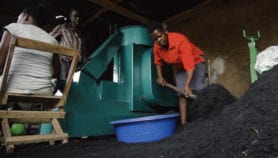By: Naomi Martin
Send to a friend
The details you provide on this page will not be used to send unsolicited email, and will not be sold to a 3rd party. See privacy policy.
Developed countries must promote the transfer of key biofuel technologies to developing nations, said the UK’s Royal Society last week (14 January).
The report, ‘Sustainable biofuels: prospects and challenges’, assesses the environmental, economic and social impact of biofuels, and outlines some of the research and development necessary to improve their effectiveness, such as increasing the yield and quality of crops from which they are produced.
The authors stress the need for effective mechanisms that will facilitate technology transfer, calling on departments such as the UK Department for International Development to take action.
"As most of the [biofuel] technologies are likely to be developed in the Organisation for Economic Cooperation and Development and rapidly emerging economies, there is a need for mechanisms to facilitate effective technology transfer to and between developing countries. This will be vital to ensure that biofuels develop sustainably, irrespective of geographies," say the authors.
According to the study, more research on the environmental effects of biofuels is required — and biofuels cannot be considered collectively.
Jeremy Woods, based at the Centre for Environmental Policy at Imperial College, London, and a member of the working group behind the report, told SciDev.Net, "One of the key messages of the report is to say that one biofuel is not the same as another. How you go about ensuring that you get ‘good’ biofuels is the absolute critical priority for policy-making at the moment."
The study outlines additional policy issues. In particular, the authors highlight the need for policy frameworks that address the environmental, economic and social uncertainties associated with biofuel development.
"Future policies will need to be much more ambitious and much broader in scope than anticipated even a few years ago. There will also be a need for international initiatives and harmonisation of regulations, not least with the sustainable production and use of and trade in biofuels," write the authors.
This week (23 January) the European Union (EU) presented its renewable energy directive, formalising their plan to obtain ten per cent of Europe’s road fuels from biofuels.
The target has given rise to concerns, acknowledged by the EU, that it could be damaging to developing countries and the environment.
Woods told SciDev.Net, "The directive is a very good step. I think that the ten per cent target is actually reasonable. However, [the EU] have to get much more serious about the level of detail that is required within the assurance and certification schemes they have proposed."













